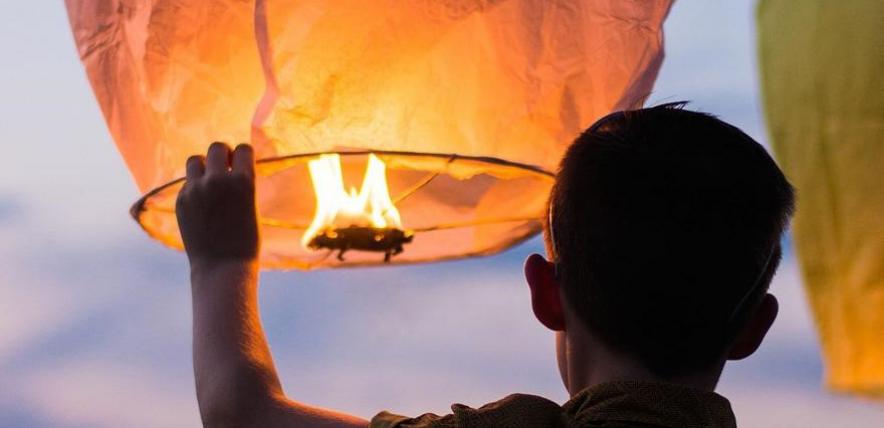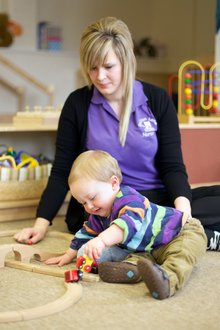Lighting the Spark! 10 Ways To Turn Your Child ON To Learning
“Education is not the filling of a pail, but the lighting of a fire.” -W.B.Yeats
What a quote! For me it sums up how I feel about our responsibility as parents/grandparents/educators – our duty to light that flame and turn our children ON to learning as early as we can.
Why should WE parents turn our children on to learning?
Surely our children will learn all they need when they go to nursery? Well people, this is why:
- In the first three years of life, our children’s brains are forming all those learning pathways. They are growing, spreading, linking up, like tendrils of a super-fast growing plant – what they learn now will have a huge effect on their future learning ability
- Your child’s development depends on both nature (the characteristics they were born with), and nurture (what they experience). What children experience shapes their development as they adapt to the world around them
- All areas of development are linked together and feed into, and influence, each other (physical/personal, social and emotional/communication and language/literacy and maths)
- Your relationship with your child, and how you respond to them and interact with them, is the foundation of their healthy development in all areas
So, we need to get it right, from the start,
With so many children failing to reach development and learning goals BEFORE they leave primary school, with growing numbers of school exclusions, and worrying statistics of more young children facing mental health issues – it’s clear to me that we (as parents/grandparents/carers) have a responsibility to get it right in the very early years of our children’s learning and development. If we do, we are helping our children in the best way we can – in getting them switched on to a lifetime of learning and achieving – and enjoying it.
Whatever we want for our children, we can have an impact on that by turning them ON to learning at a very young age. This is because, for most of us, what we learn in our very early formative years, and how we learn after that, is vital to our ability in choosing the right life choices that we make later.
My Facebook followers are important to me – most of them are parents/grandparents and educators of Early Years children and are very wise. I asked them how they had turned their children on to learning and I’ve included most of their comments and ideas in this Top Ten list:
1. Share what you know, talk about everything.
I was shopping the other day and kept bumping into a mum and her little one as I went from aisle to aisle. The little girl was about 14 months old. Mum was talking to her all the way around, asking questions, making comments and the little one was actively listening and engaged. Perfect! All that language input and bonding over the frozen peas!
 2. Don’t read TO your children, read WITH them
2. Don’t read TO your children, read WITH them
Choose books that YOU love yourself. If you do this, if you show your own love of reading – well it’s contagious, and your child will catch it from you! Don’t let them just stare at the pictures in a book while you do all the reading. Draw their attention to the words. Use character voices and emotion when reading. Ask questions “What do you think …?” “Where is the …?” This will help build their reading skills. Reading is such an important part of our learning throughout our lives, we gain so much from it, so giving your child the gift of the love of reading is a precious and empowering gift. I love ‘Game of Thrones’ – for me the author George R.R. Martin sums it up with this quote “A reader lives a thousand lives before he dies. The man who never reads lives only one”.
3. Go outside
Research shows that children get the greatest benefits from being outdoors. Why? Well, natural play is about the process, not the outcome, and it is in the process that we all learn. Extensive research has shown that time in nature has an impact on physical fitness, emotional health, self-identity, basic values and morals, stress reduction, creativity, and self-esteem. Children who regularly do hands-on activities and play in nature show heightened motor control – including balance, coordination, and agility. They tend to engage more in imaginative and creative play, which in turn fosters language, abstract reasoning, and problem-solving skills, together with a sense of curiosity, and of wonder. WOW – why aren’t we all out there NOW?!
4. Build on the child’s interests
This is really, really important. If your child has a love of dinosaurs, or Duplo, or Peppa Pig, or playdough – well let them learn through that! The likelihood is that they will be more interested and engaged. If someone asked me to learn Spanish so that I could talk to Antonio Banderas in person – I WOULD – with pleasure and with enthusiasm. Let’s take dinosaurs – “Shall we count the dinosaurs?” “Which dinosaurs are the same colour?” “Can we make a dinosaur world? What do we need?” “What do dinosaurs eat? Shall we make/find dinosaur food?” … If it’s something that your child is really into – then learning is a pleasure.
5. Enjoy it yourself
If you are obviously having fun – well your child will see that. They will pick up on your enthusiasm and sense of fun and RUN WITH IT! This creates huge sparks for wanting to engage in learning – “Daddy loves this and I will too!” “This makes Mummy happy, it makes me happy too.”
For the next five tips, read the second part of the blog here. In the meantime, why not see how many of the tips above you can practice with your child? Have fun lighting that spark!
Written by Jo Fitzgerald, early years teacher and founder of Tiny Sponges
Visit Tiny Sponges on Facebook
Or join the Facebook group here







